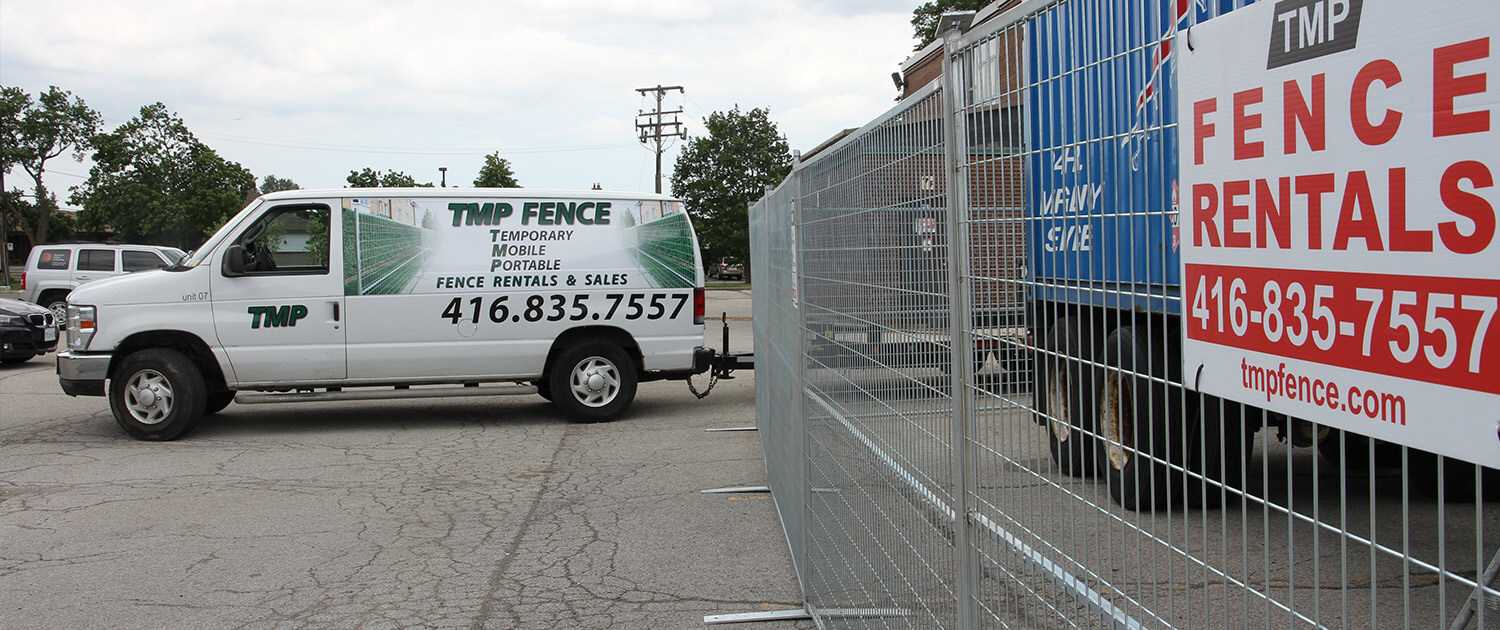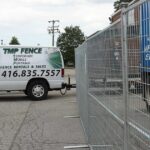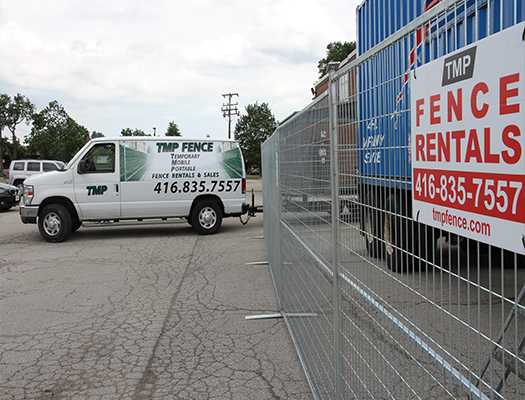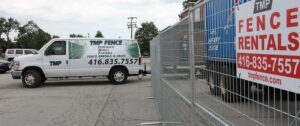There’s a big construction project coming up and you may need to rent a fence. You’re coordinating all the substances, suppliers and labour to make sure that the job gets done correctly. When you need a temporary construction fence to fasten your site, you may wonder if it’s best to rent a fence. There are several factors to consider, but to help simplify matters we have narrowed them down to those three:
Resources
In cases like this, “tools” refers both to people and equipment. Buying a construction fence will entail transporting the fence from the work site to your storage facility once the project is complete. This will require disassembling the fencing and loading it onto a properly equipped vehicle to bring it to its final destination. Do your trucks have the essential equipment, such as straps and banding, to transport fences safely? Do you have a forklift to securely and efficiently load the fence and can you allocate the appropriate quantity of labour to ease tear-down, loading and transportation? During the summer season, it can be hard to spare energy for extra-curricular activities. If you rent a fence it may be your very best option because of this. We can coordinate our team for set up, removal, and transport — saving you the headache.
Purchasing temporary fencing means you’ll require somewhere to put the fence when it is not in use. If you are working within a large area (and therefore, a large amount of fence), then it may be challenging to find the essential area to store the fence in the event you choose to purchase. The more fencing you buy, the more square footage you’ll need to devote to storage.
The most effective way to store fence is with it laying flat on the ground, with panels banded together. As a best practice, at TMP Fence we pile construction fence in amounts of 1,000′ — so 100 panels to a stack. If you’re working with standard 6′ tall by 10′ extended fence panels, this also means you need approximately 60 square feet for each 1,000′ of weapon. Don’t forget to factor in extra space to have the ability to get into the stacked fence with a forklift.
Beyond getting the available space, you’ll also have to think about whether your storage area is suitable for temporary fences. It ought to be a safe area, and it needs to be protected from the elements. You ought to avoid wet conditions to prevent rust and prolong the life cycle of this fence.
Duration Of The Job
Generally, if the job is expected to continue for a minimum of two years, you need to consider to buy fences. This is typically the point where the cost of renting for the duration of the project would exceed the cost of getting the fence. Are you returning to the site, or continuing to another job with comparable fencing conditions? Purchasing might still be rewarding if you have several similar tasks that can run invisibly and pursue for a few years. It could be more cost-effective to purchase the fence rather than rent a fence should you think it will work well for multiple upcoming jobs.
If you do intend to move the fence from site to site, you’ll want to look at the type of fence you purchase carefully. Some temporary fences hold up much better to relocation than many others, so do your research. Investing in the ideal kind of fence will ensure your choice to purchase pays off in the long term. Of course, not every contractor or project has the budget to create a capital investment in building a fence. If cash flow is an issue, leasing a fence may still be the thing to do.
Making The Perfect Decision
There are numerous factors to take into consideration when deciding whether to lease or purchase your temporary fence — like your finances, access to storage, and accessible resources. It’s almost always best to consult with our representatives before making a final decision. Our sales representatives can help identify the possible challenges and advantages of leasing versus purchasing as they pertain to a specific situation. Contact TMP Fence, and we’d be delighted to help you make the best decision for your job.




